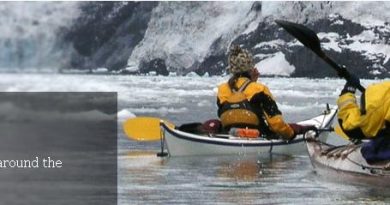Spotlight: Mental health in indigenous communities
 Dr. Suzanne Stewart, a Professor of Aboriginal Healing in Counseling Psychology, University of Toronto, and a member of Canada’sYellowknives Dene First Nation in the Northwest Territories, addressed the Plenary Panel: Communities and Health session at the 2012 International Polar Year conference in Montreal today.
Dr. Suzanne Stewart, a Professor of Aboriginal Healing in Counseling Psychology, University of Toronto, and a member of Canada’sYellowknives Dene First Nation in the Northwest Territories, addressed the Plenary Panel: Communities and Health session at the 2012 International Polar Year conference in Montreal today.
Her discussion of the ways that the southern-based mental health care system doesn’t always well serve Canada’s First Nations communities seemed to resinate with a lot of people in the room who nodded their heads in agreement as she spoke.
Her main points concerned the different world views held by indigenous peoples and so-called ‘western medicine.’
Indigenous mental health means a blance between mental, physical, spiritual and emotional being, she said. Western medicine is more foccused on disease and illness, she added.
Correcting this approach in aboriginal communities would mean including things like storytelling, elders, health circles and traditional ceremonies such as drum dancing in mental health practise as well as an understanding of colonialism and healing from the collective emotional trauma in First Nations communities.
Write to Eilís Quinn at eilis.quinn(at)cbc.ca


